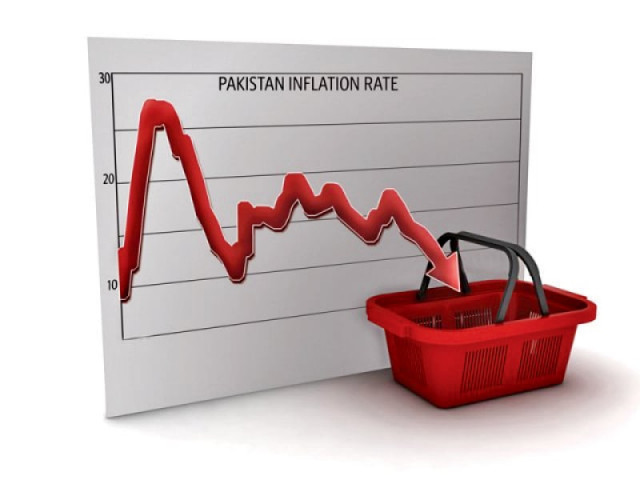Inflation: CPI stable at 7.9% for second consecutive month
Data supports govt’s initiatives to control expenditure, experts remain skeptical.

The CPI has been lowering for the last three months after it peaked to 10.9% in November 2013. CREATIVE COMMONS
Amid a tight fiscal policy, prices in the country seemed to be stabilising as average consumer prices rose by 7.9% in February compared with prices in the corresponding month last year, allowing the government room to take measures to stimulate growth.
The Consumer Price Index (CPI) stayed at 7.9% in February over the comparative period of the last year, according to Pakistan Bureau of Statistics (PBS). This is the second month in a row that the CPI – the main national indicator reflecting change in prices of basket of goods and services – clocked in at 7.9%. Earlier in January too, the CPI remained at 7.9% mainly because of a reduction in the prices of perishable food items due to their better availability in the market.

The CPI has been lowering for the last three months after it peaked to 10.9% in November 2013.
There was an uptick in inflation in the first half of the current fiscal year, but now it seems that prices have stabilised, said Dr Naved Hamid, a professor of Economics at the Lahore School of Economics. He said price stability could be because the government has tightened control over expenditures.
According to Ministry of Finance, the budget deficit in the first half of the fiscal year remained at 2.2% of Gross Domestic Product (GDP). The phenomenon of monetary expansion seemed to be reversing and growth in money supply was 5.1% from July 1st to February 25, according to the State Bank of Pakistan (SBP). Net borrowings for budgetary support were also curtailed at Rs459 billion till February 25 as compared to Rs680 billion in the comparative period of the previous fiscal year, according to the SBP.
However, there has been growing skepticism about the credibility of the official data. The printing of currency notes, a major contributing factor, is not fully reflected in the CPI-based inflation, which, according to analysts, is a serious methodology problem.
Four international banks hired to float Euro-Bonds for the government have also counted unreliability of the official data as a risk factor in their report, which will be offered to international investors for studying the country’s indicators before taking any decision on investing in its security papers.
According to analysts, the government should exploit the space available after stabilisation in prices and take measures to stimulate the growth, which has suffocated due to drastic slowdown in development spending.
The underlining inflationary pressures also appear to be easing out as core inflation, which is calculated after excluding food and energy items from the CPI basket, slowed down to 7.8% in February over a year ago, for the first time in seven months.
In February 2014, the rate of food inflation reduced to 7% on year on a year basis. The inflation rate of perishable food items was registered at 6.9%, while for the non-perishable food items it was at 8.1%.
On a yearly basis, prices in the commodity group of housing, water, electricity, gas and fuels also remained stable at 9.3% in February over the comparative period of last year, according to the PBS. The inflation rate for the group of clothing and footwear also stayed at 16% in February from a year ago and for the groups of transport and communication the rates remained below 5% in February over a year ago.
Average inflation in the first seven months of the current fiscal year (July-January) remained at 8.7%, according to the PBS.
The average inflation figures are below the projections of the International Monetary Fund (IMF). In the second review of Pakistan’s economy under its $6.7-billion programme, the IMF increased its inflation projection to double digits for the current fiscal year 2013-14.
Published in The Express Tribune, March 4th, 2014.
Like Business on Facebook, follow @TribuneBiz on Twitter to stay informed and join in the conversation.



















COMMENTS
Comments are moderated and generally will be posted if they are on-topic and not abusive.
For more information, please see our Comments FAQ